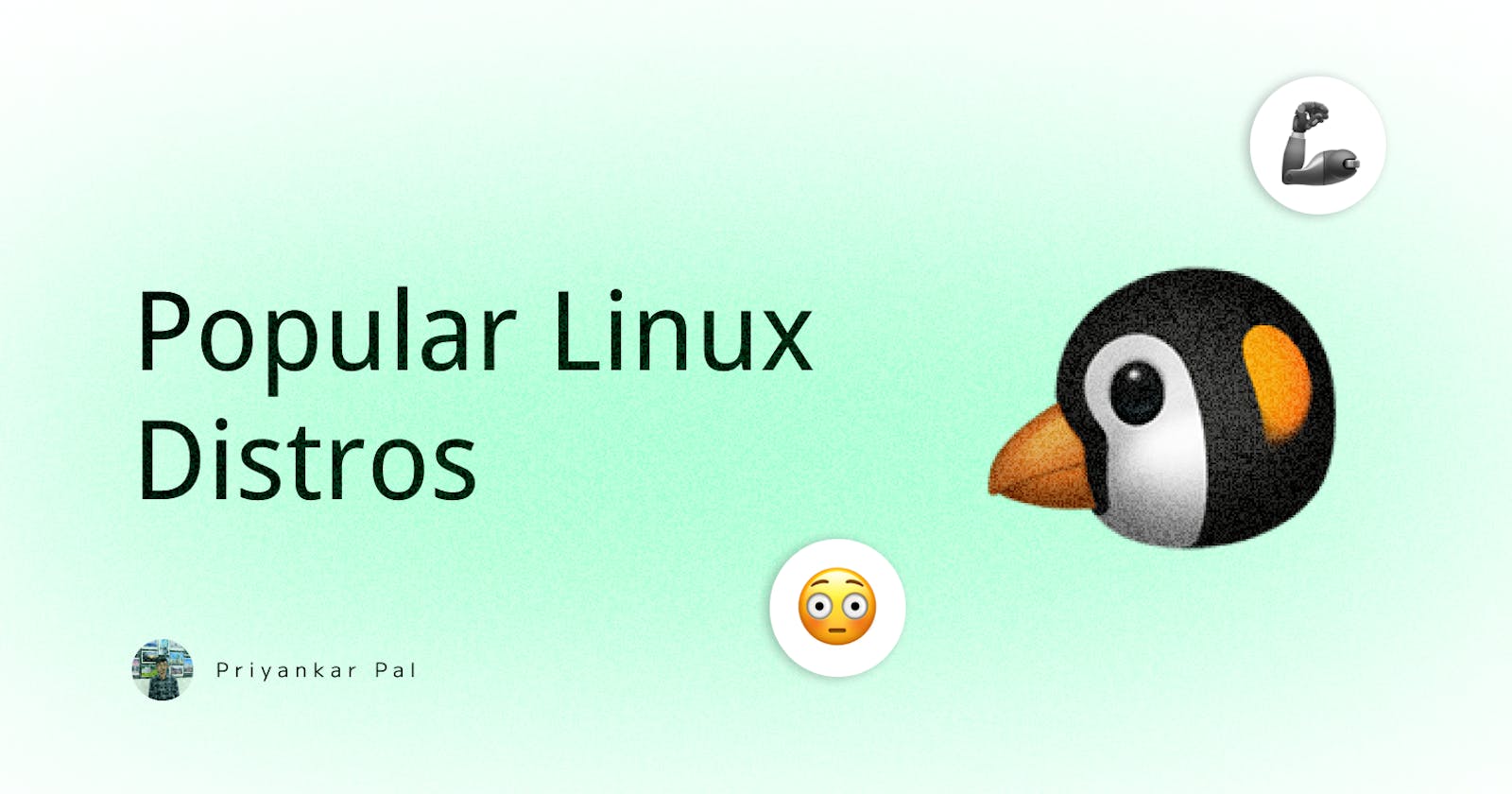In this guide, we will be exploring the world of Linux distributions, providing a comprehensive overview of some of the most widely-used and popular options available. Whether you're a Linux user or just starting to learn about this Open Source Operating System, this guide will give you a good understanding of the different distributions and their unique features. From user-friendly distributions like Ubuntu to more specialized ones like Kali Linux, we've got you covered. So sit back, relax, and let's dive into the world of Linux.
🤔 Why Linux is more important than any other OS?
Linux is considered more important than other Operating Systems for several reasons:
✅ Open-source:
Linux is Open Source software, meaning that anyone can use, modify, and distribute its source code. This results in a large community of developers constantly improving and updating the system.
✅ Security:
Linux is known for its stability and security features, making it a popular choice for servers and other critical systems.
✅ Customizability:
Linux offers a high degree of customization, allowing users to tailor the operating system to their specific needs.
✅ Cost-effective:
Linux is free and open-source, making it a cost-effective option for individuals and organizations.
✅ Compatibility:
Linux is compatible with a wide range of hardware, including older and lower-end systems.
✅ Community support:
The large Linux community offers extensive support and resources, making it easier for users to get help and advice.
These factors have made Linux a widely-used and popular operating system, especially in the enterprise and scientific communities.
📌 Tip: Get information about Linux systems in just 10 seconds

🤯 Here are the lists of 20+ Linux Distros:
Ok. these aren't enough Linux has more than 600+ mindblowing Distros, you will gasp while using Linux Distros.
✅ Ubuntu:
A popular, user-friendly, and open-source Linux-based operating system based on Debian.
✅ CentOS:
A community-driven and open-source Linux distribution derived from Red Hat Enterprise Linux.
✅ Debian:
A non-profit and open-source operating system known for its stability, simplicity and widespread software availability.
✅ Fedora:
A community-driven and open-source Linux distribution sponsored by Red Hat and focused on cutting-edge software.
✅ Slackware:
A highly customizable, stable, and simple Linux distribution that has been in development since 1993.
✅ Mint:
A user-friendly and open-source Linux distribution based on Ubuntu, designed to make it easy for users to switch from other operating systems.
✅ Xubuntu:
A lightweight and user-friendly Linux distribution based on Ubuntu, using the Xfce desktop environment.
✅ Arch:
A rolling release and highly customizable Linux distribution known for its documentation, speed and user-centric approach.
✅ OpenSUSE:
A community-driven Linux distribution sponsored by SUSE, with a focus on stability, usability, and integration with enterprise environments.
✅ Red Hat:
A leading provider of open-source solutions and the developer of Red Hat Enterprise Linux.
✅ Slackel:
A Greek Linux distribution based on Slackware and Salix.
✅ PureOS:
An open-source operating system developed by Purism focused on privacy and security.
✅ Mageia:
A community-driven and independent Linux distribution that aims to provide a high-quality, stable, and easy-to-use operating system.
✅ PCLinuxOS:
A user-friendly and easy-to-use Linux distribution designed for both beginner and advanced users.
✅ Puppy:
A lightweight and highly customizable Linux distribution, designed for older and low-specification computers.
✅ Zorin:
A user-friendly and easy-to-use Linux distribution based on Ubuntu, designed to make it easy for Windows users to switch to Linux.
✅ BunsenLabs:
A community-driven Linux distribution based on Debian, using the Openbox window manager and offering a clean and modern interface.
✅ Kubuntu:
A user-friendly Linux distribution based on Ubuntu, using the KDE desktop environment.
✅ Manjaro:
A user-friendly and beginner-friendly Linux distribution based on Arch, designed to be simple, yet powerful.
✅ Bodhi:
A lightweight and highly customizable Linux distribution based on Ubuntu, designed to be fast, efficient, and eco-friendly.
✅ Netrunner:
A user-friendly and community-driven Linux distribution based on Debian, designed for stability and ease of use.
✅ Neptune:
A user-friendly and easy-to-use Linux distribution based on Debian, designed for desktop use.
✅ Kali:
A Debian-based Linux distribution designed for penetration testing, digital forensics and security auditing.
✅ Lubuntu:
A lightweight and user-friendly Linux distribution based on Ubuntu, using the LXDE desktop environment.
✅ Solus:
An independent, desktop-focused and modern Linux distribution, providing a streamlined experience without any legacy components.
Conclusion:
In conclusion, the Linux operating system is a highly versatile and flexible platform that has a large variety of distributions to choose from. From beginner-friendly distributions like Ubuntu to more advanced distributions like Arch Linux, the Linux community provides a wide range of options for users to explore. Regardless of your level of expertise, there is likely a Linux distribution that is a good fit for you.
This blog is written for the “Operating Systems” track of CoCode Blogs.
